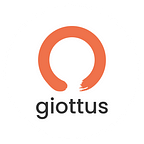Crypto Roundup: Norway Central Bank bats for crypto laws; Visa, Microsoft join Central Bank of Brazil’s CBDC Pilot
South Korea passes bill for officials to declare digital assets
South Korea’s National Assembly has unanimously passed a bill that obligates lawmakers and high-ranking public officials to declare their crypto assets. The move aims to enhance transparency and prevent potential conflicts of interest.
The bill requires public servants, including lawmakers and high-ranking officials, to declare their cryptocurrency investments and provide details of their holdings.
This comes in response to a government scandal involving some members of the National Assembly moving significant sums of crypto assets.
Visa, Microsoft, and others join Brazilian CBDC pilot
Finance and tech giants — Visa and Microsoft have joined a pilot project initiated by the Central Bank of Brazil for the development of a Central Bank Digital Currency (CBDC).
The project aims to explore the potential of digital currencies in facilitating faster, more secure transactions. With these major players coming together, the Brazilian CBDC pilot gains further momentum, bringing the country closer to a future with a digital form of its national currency.
A total of 36 proposals, submitted by both individual companies and consortiums, totalling “more than 100 institutions,” were taken under consideration, with the final participation count being 14.
Norway’s central bank calls for national crypto regulations
The central bank of Norway has recommended that the country consider adopting a national strategy for crypto regulation.
Recognizing the growing prominence of crypto assets, the bank emphasizes the need for a clear regulatory framework to address risks related to consumer protection, financial stability, and potential illicit activities.
The European Union’s Markets in Crypto-Assets (MiCA) regulation will come into force soon but the Norges Bank claims that MiCA may not be adequate to all crypto regulatory needs.
Norway aims to strike a balance between fostering innovation in the crypto industry and safeguarding the interests of investors and the broader financial system.
Circle launches Euro-based stablecoin on Avalanche blockchain
Circle, a leading crypto company, has launched a new euro-based stablecoin (EUROC) on the Avalanche blockchain.
It aims to deliver faster and more efficient payments and financial services for developers and users. Circle’s integration with Avalanche’s high-performance blockchain network allows for fast and cost-effective transactions, bolstering the ecosystem for euro-based digital assets.
Circle has recently introduced a protocol that lets cross-chain transfers of USDC between Ethereum and Avalanche.
Chinese city Zhengzhou releases draft policy for metaverse industry
The city of Zhengzhou in China has released a draft policy outlining plans for the development of the metaverse industry. According to the government draft, metaverse enterprises that relocate their headquarters to Zhengzhou will be eligible for up to 200 million yuan ($28.34 million) in startup capital.
The policy aims to create a supportive environment for companies and entrepreneurs in the metaverse space, focusing on fostering innovation, attracting investment, and promoting technological advancements.
With this, Zhengzhou aims to position itself as a hub for metaverse development, leveraging the potential of virtual reality and immersive experiences.
